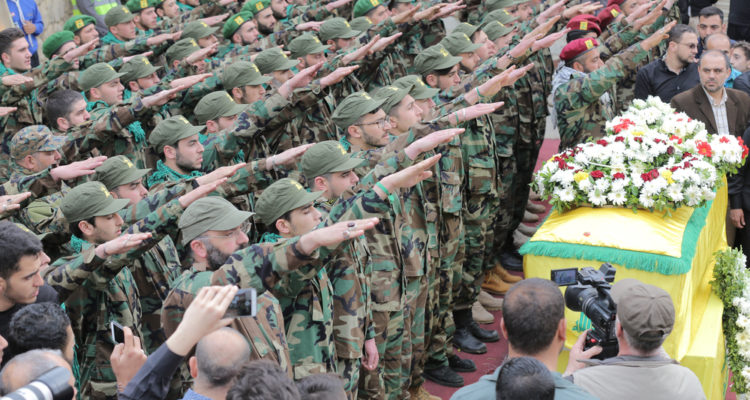Hezbollah’s defeat would shift the strategic paradigm and change the prevailing diplomatic belief that it is necessary to talk to terrorists rather than craft strategies for their defeat.
By Michael Rubin, Middle East Forum
In January 2010, Secretary of State Hillary Clinton broached negotiations with the Taliban. “You don’t make peace with your friends. You have to be willing to engage with your enemies,” she explained.
It was a blow to the gut of the elected Afghan government and a shot of adrenalin for Taliban insurgents. For Clinton, though, it was merely realism. No matter how odious the Taliban might be, they were a fact.
The United States could neither defeat the group nor wish them away.
The same attitudes toward terror groups permeate widely, not only in Washington, but also in Europe and the United Nations.
After the October 7, 2023, Hamas pogrom—an attack responsible for the deaths of more Jews in any single day since the Holocaust—diplomats shrugged their shoulders and urged negotiation.
After all, Hamas controlled Gaza. That was a fact impossible to reverse. Using military force to extricate it would be analogous to stabbing Jell-O.
Most of the U.N. General Assembly agreed, rewarding Palestinian terror by giving membership to the State of Palestine.
The same assessment held true with Hezbollah. On September 20, 2024, a British Orientalist opined, “the interests of Iran, Hezbollah and, in the long term, Israel, lie not in a war with maximalist aims but in a state of coexistence, which, regrettable and cynical as it may be, includes everything short of war.”
There are three elements driving such attitudes. The first is the legacy of frequent rotations of diplomats and international officials. The 1996 Taliban sacking of Kabul or the Hamas take-over of Gaza just over a decade later may have been shocking in their brutality, but diplomatic rotations every year or two normalized them.
As far as diplomats were concerned, the Taliban represented Pashtun culture and always had, and it was normal for terrorists to control the Gaza Ministry of Health.
Second is absence of historical awareness and strategic vision. Islamism is simply the latest “ism” to overrun the Middle East. Egyptian President Gamal Abdel Nasser’s Arab Nationalism faded with time and so too will Ayatollah Ruhollah Khomeini or Recep Tayyip Erdoğan’s Islamist visions.
Nor is it correct to assume that it is impossible to defeat ideology. The Baader Meinhof Group faded long before the Soviet Union’s demise. This is true even when the ideological group controls territory.
Neither the West nor the United Nations compromised with the Khmer Rouge as they transformed Cambodia into killing fields. The group faded away after Vietnam invaded to end its terror.
Military force largely defeated the Islamic State’s caliphate, even if Erdoğan’s Turkey seeks to keep it on life support.
Third is condescension if not racism and antisemitism. The United States and Europe might have one standard of tolerance regarding terror on their borders, but the diplomats who dominate the Foreign Office imply that Israel and the Arabs live by lesser standards.
Israel’s September 17, 2024, “Operation Below-the-Belt” or, as the Hudson Institute’s Michael Doran put it, “Operation Grim Beeper,” was tactically and strategically brilliant.
It targeted Hezbollah precisely and neutered the group with devastating effect. Israel’s follow-up attacks targeting radios and face-to-face meetings has left Hezbollah in disarray.
Never in the 42 years since the Islamic Republic of Iran formed the group has it been so close to a knockout blow. And Israel is currently dealing that blow.
Driving around southern Lebanon in 2020, I met current and former Hezbollah members in their heartland. Sitting at a tea house just outside Nabitiyeh, Lebanon, Hezbollah members—including one man who had spent years in an Israeli prison—said that they had had enough.
Israel existed, Hezbollah was more a mafia than a liberation movement, and they just wanted normalcy. That “Maximum Pressure” dried up Hezbollah resources only hastened such conclusions.
Many cursed Iran and viewed the pre-2000 border trade with Israel as a golden period for southern Lebanon.
When Israel first invaded Lebanon in 1982, Lebanese Shi’ites cheered them as the Israelis drove the Palestine Liberation Organization from their towns and villages.
The honeymoon was short, as Israel both outstayed their welcome, and the Islamic Revolutionary Guard Corps and Syria separately sought to fill the vacuum with groups loyal to Tehran or Damascus but hostile to Israel.
Iran won Lebanon’s intra-Shi’ite civil war by 1986, but 38 years on, Lebanese Shi’ites have had enough.
The Antony Blinkens, Jake Sullivans, Jeremy Corbyns, and David Lammys may seek to preserve the status quo, but Israel should not.
To eliminate Hezbollah and restore full sovereignty to Lebanon would shift the strategic paradigm and change the prevailing diplomatic belief that it is necessary to talk to terrorists rather than craft strategies for their defeat.





